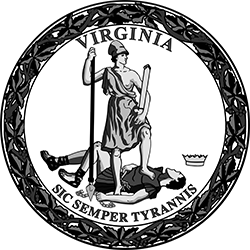The Tech Talent Investment Program (TTIP), launched in 2019, is a historic $1.1 billion, 20-year investment in Virginia’s tech talent pipeline. TTIP was conceived as part of Virginia’s 2018 winning proposal to Amazon for HQ2. Participating institutions have set goals to increase the number of BS and MS graduates in Computer Science and related fields […]

Improving Virginia's Career Readiness System: The Effectiveness of Virginia's Career Readiness System (Brief #4)
The international, non-partisan Organisation for Economic Co-operation and Development (OECD) recently conducted an in-depth review of career readiness activities in K-12 schools in Virginia. The study is part of the OECD Career Readiness project, which is examining and benchmarking career readiness practices across the globe in an effort to help governments, schools, employers, and other stakeholders better prepare students to enter the workforce. The final report was published on December 1, 2023 and is available here. The report examines the Commonwealth’s career readiness system along the dimensions of effectiveness, efficiency, and equity. This brief, the fourth in a series, reviews OECD’s assessment of the effectiveness of Virginia’s system. To assess effectiveness, OECD examined the Commonwealth’s use and implementation of those career readiness activities most likely to improve students’ education and workforce outcomes. The Organisation highlights what Virginia is doing well in many areas and makes three recommendations for improvement.
Strengths of Virginia
OECD was impressed by the Commonwealth’s commitment to and implementation of career readiness activities. Career readiness is part of Virginia’s policy agenda, and the Commonwealth recognizes the important role it plays in education, society, and the economy.
Key strengths of Virginia include:
- Every student is expected to complete an Academic and Career Plan (ACP) to help map out their education
and prepare them to enter the workforce. - Students must complete career readiness requirements for high school graduation.
- Students have many opportunities in middle school and high school to explore different career pathways.
- Virginia offers comprehensive career and technical education (CTE).
- Virginia recognizes and offers 12 forms of high-quality work-based learning (WBL), including job shadowing, mentorships, and internships.
- Based on OECD’s surveys of young adults (see OECD Brief #2 here) and students (see OECD Brief #3 here), most Virginians view their high school career readiness experience positively.
Recommendations for Virginia
OECD determined that Virginia largely has the appropriate career readiness policies and tools in place. To guide students more effectively, the Commonwealth should expand and enhance the existing system in three ways.
Recommendation 1
Virginia should consider standardizing and monitoring the use of career readiness tools, including Academic and Career Plans (ACP), in K-12 schools.
While the Commonwealth has many effective career readiness tools on paper, in practice, they are used inconsistently, and Virginia requires minimal reporting and data collection around offerings and student completion rates. Based on the results of the OECD survey of 10th and 11th grade students, one quarter of high school students may not have ACPs, despite the state mandate that every student complete one. At the middle school level, career investigation standards are implemented in a variety of ways, and there is no tracking of the effectiveness of different delivery methods. Similarly, Virginia does not monitor division offerings and student participation in different forms of WBL experiences. Without these types of data, it is difficult to determine exactly what career readiness experiences students are participating in and how effective they are at preparing students for the workforce.
As a first step towards improving the effectiveness of Virginia’s career readiness system, OECD recommends systematically monitoring and collecting data on divisions’ implementation of career readiness activities and students’ participation in and completion of those activities. Online career navigation platforms, including Virginia Wizard, could be used to collect many important datapoints. The Commonwealth should also ensure that career readiness requirements are being implemented as mandated, especially ACPs.
Recommendation 2
Virginia should consider developing a new K-12 career readiness framework or updating the existing one, with an emphasis on career readiness activities strongly tied to better employment outcomes.
Virginia’s K-12 career readiness requirements are underpinned by code and the 2004 Standards for School Counseling Programs in Virginia Public Schools. Administrative Code Section 8VAC20-131-140 provides direction related to “College and career readiness; career exposure, exploration, and planning; and opportunities for postsecondary credit,” including requirements related to ACPs and career investigation courses. The Standards include grade level goals, such as students in high school should, “apply decision making skills to career planning.” OECD determined that Virginia’s career readiness framework lacks specificity and does not require sufficient monitoring and evaluation. The standards are narrow compared to other career readiness guidelines, and they are not tied to specific activities, outcomes, or measures. These weaknesses are especially problematic given the high level of autonomy afforded to Virginia school divisions.
OECD recommends that Virginia replace or update the career readiness framework to be more detailed and comprehensive, with a focus on activities most closely tied to better employment outcomes. The new guidelines should be more specific and delineate the experiences that all students should have as part of their career readiness preparation, but they do not need to be prescriptive. The framework should still maintain division autonomy and allow for flexibility in implementation.
Recommendation 3
Virginia should consider increasing the number of school counselors and teachers, including career and technical education (CTE) teachers, by easing regulations into teaching or through other means. Virginia should simultaneously ensure that staff receive high-quality training around career guidance.
Virginia’s teachers and counselors often lack sufficient time and resources to provide adequate career guidance to students. While the ratio of students to counselors in Virginia is lower than the US average, it is still higher than the American School Counselor Association’s recommendation. There is also a well-documented teacher shortage in Virginia and across the United States.
OECD recommends that the Commonwealth take steps to increase the supply of teachers, counselors, and other staff who can support the career readiness of students. This could be accomplished through a variety of means, including increasing teacher pay and expanding alternative pathways into teaching. Certain administrative tasks around career readiness provision can also be automated to allow staff to spend more time working directly with students. Importantly, Virginia must ensure that existing and new staff receive high-quality training on how to best deliver career readiness experiences and guidance to students.
Conclusion
The Commonwealth is committed to providing high-quality career readiness experiences to students. To make the system even more effective, Virginia should build upon existing policies and tools to standardize and monitor ACPs and other activities; provide more specific guidelines around career readiness provision; and increase the availability of staff to provide career guidance to students.
Read and download the brief here

